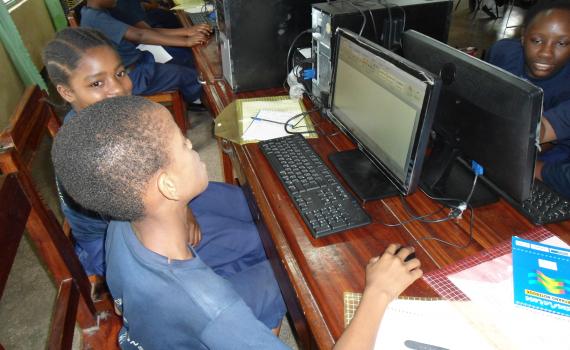
Community need
In Tanzania, cultural barriers prevent many parents from speaking openly to their children about sex and sexuality. As a result, teenagers experience confusion and fear as they journey through adolescence, which is a time for sexual exploration and experimentation. Without the right information, teenagers are at risk of early and unintended pregnancy, unsafe abortions, sexual harassment and exploitation, and contracting sexually transmitted diseases like gonorrhoea and HIV/AIDS.
The innovative service
Tanzania Library Services Board uses information and communication technology (ICT) to raise teenagers’ awareness about crucial issues relating to adolescent sexual health, enabling them to make healthy decisions and to prevent unintended pregnancies and the spread of sexually transmitted diseases.
With support from the EIFL Public Library Innovation Programme (EIFL-PLIP) in 2012, the library bought eight computers and entered into a partnership with the non-governmental organization, Femina Health Information Project (Femina HIP), which promotes healthy lifestyles for adolescents. The partners marketed the services to schools and launched an ICT and sexual health education programme in schools and in the library.
EIFL-PLIP Project timeline
April 2012 - May 2013.
Achievements and Impact
In less than a year,the service worked with over 100 school pupils in three schools, demonstrating the effectiveness of ICT in helping teenagers understand the physical and emotional changes brought on by adolescence, and guiding them in safe sexual practices. The service also raised visibility of the library and increased the numbers of teenage library users.
Additional resources
Read a two-page case study about the project.
More libraries contributing to community health
Read about more innovative public library services that are helping to build healthy communities. PLIP-HEALTH





